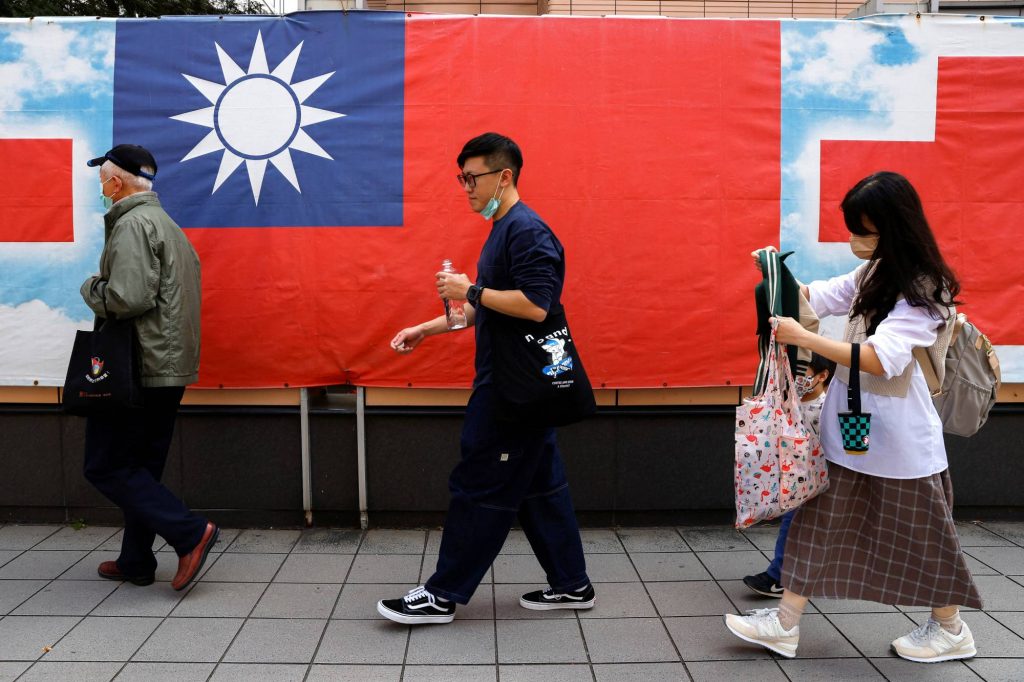Among the series of elections due in 2024 across the globe with far-reaching consequences, the presidential fight in Taiwan on 13 January will be one of the most closely watched and significant. The political future of the island and its inimical relations with China will shape not only the fate of Taiwan’s nearly 24 million citizens, but also redefine global security and prosperity. China considers Taiwan as a rebellious province rather than an independent country. Beijing’s longstanding position is that the two should be reunified. What has caused tension in Taiwan and its allies, including the US, is Chinese President Xi Jinping’s rather belligerent posturing in his New Year address in which he described this reunification as a “historical inevitability.”
Taiwanese voters vehemently oppose this reunification. China has so long been telling the world that this should be accomplished by peaceful means. While at the same time it has not ruled out using force. Evidence of the possibility of such an eventuality is the military and economic pressure China has mounted on the island. This has alarmed governments and military leaders around the world, given the real possibility that a war over Taiwan could draw in other countries, including the US, that will devastate the global economy.
Unlike elections everywhere else, social and economic issues are not dominating electoral campaign in Taiwan. It is the question of Taiwan’s future without Chinese domination or reunion with China that is the main issue for the election this time around. What has injected further tension is the warning issued by a senior Chinese official asking Taiwanese voters this week to make the “correct” choice. He even termed the election as a decision between “peace and war, prosperity and decline.”
The main contenders for the election are the current Vice President Lai Ching-te, also known as William Lai, of the Democratic Progressive Party (DPP), Taipei Mayor Hou You-ih of the Kuomintang (KMT), and Ko Wen-je, of the Taiwan People’s Party (TPP).
Lai has forged ahead of his rivals in the opinion polls till date. He has already benefited when an attempt by the two opposition parties to form an alliance and put up a common candidate fell through in November. But the race has been tightening in recent weeks. Lai led by 5 points at the end of December. This means though Lai is a hot favourite to win the election, one cannot rule out a surprise.
The KMT is descended from the nationalist party that led mainland China for two decades before it took refuge in Taiwan after the communist takeover in 1949. The KMT controlled Taiwan as an autocratic, one-party state until the island’s transition to democracy in the 1990s. However, in a new turn of events the KMT is now favouring closer economic and political ties with Communist ruled China. On the other hand, the DPP, which has held the presidency since 2016, advocates the policy that Taiwan should build closer ties with other international powers. Under the outgoing DPP President Tsai Ing-wen, Taiwan deepened its ties with the US in such a manner that China responded with threatening and highly provocative military drills around Taiwan in recent times.
More than 80 per cent of Taiwanese people oppose reunification and any attempt to revive the idea by either of the two Opposition parties is expected to be rejected outright. In fact, Lai has contended that the KMT’s embrace of Beijing is the most dangerous path and it would put the country’s hard-fought sovereignty at risk. “Instead of countering the communists, they now befriend the communists,” he said.
The last time the KMT was in power from 2008 to 2016, then President Ma Ying-jeou took a more conciliatory tone and forged a number of trade deals with China. But Beijing eventually had to eat dust as there was a huge public backlash in Taiwan. Since then China under Xi has become even more authoritarian, sending alarm bells ringing in highly democratic Taiwan.
The developments in Hong Kong where Beijing-backed authorities ruthlessly cracked down on the democratic institutions and the Opposition seem to have made the majority of Taiwan’s population even more determined than ever before not to succumb to China’s pressure for reunification. According to recent polls, 66 per cent of the population now identifies as solely Taiwanese against 28 per cent as both Taiwanese and Chinese and just 4 per cent as solely Chinese. Only 2.3 per cent of Taiwan’s population is Indigenous and not ethnically Chinese.
If these are any indications, the Taiwanese people seem determined to be opting for a status quo, keeping China at bay on the other side of the bays.
